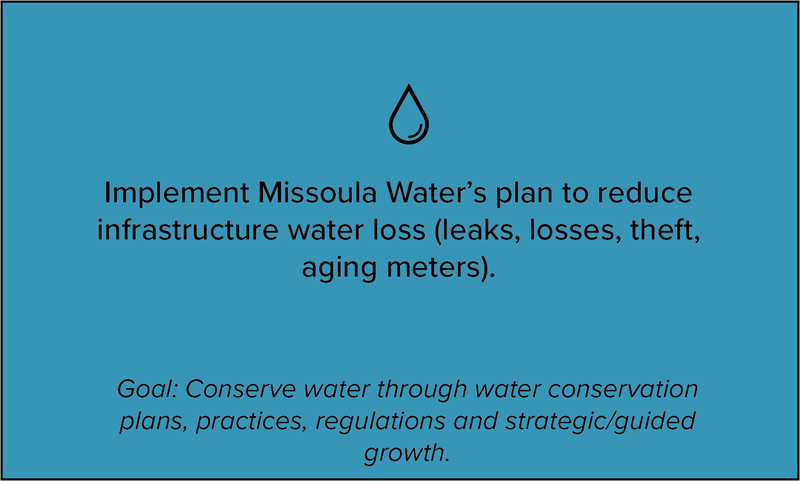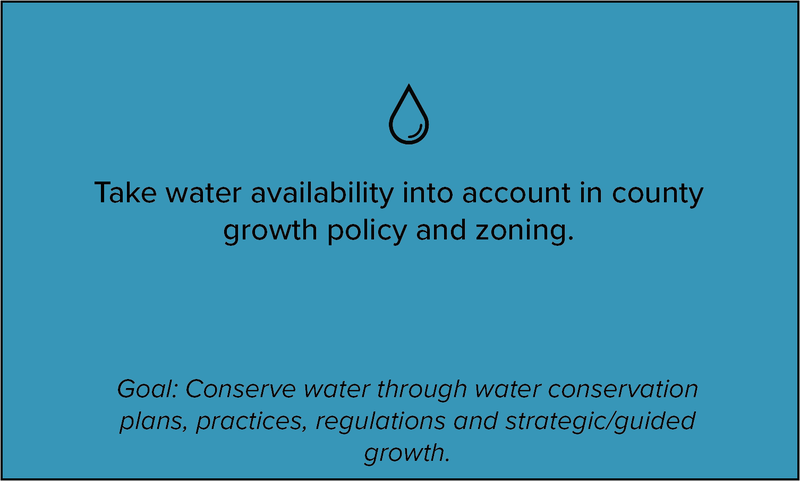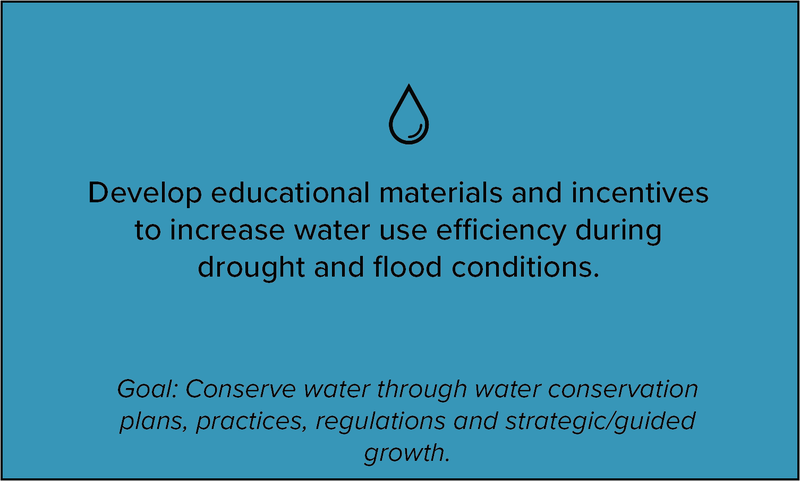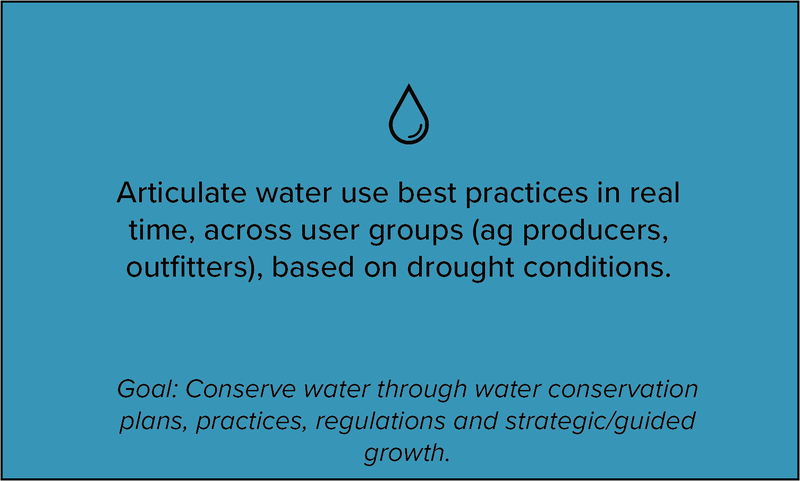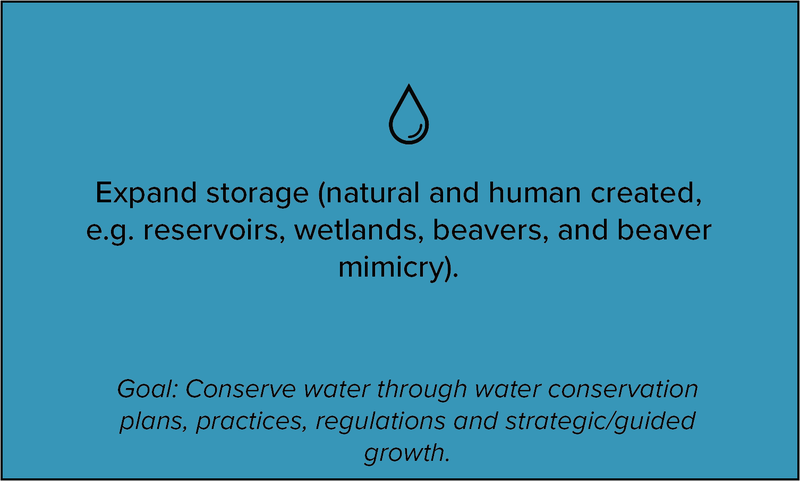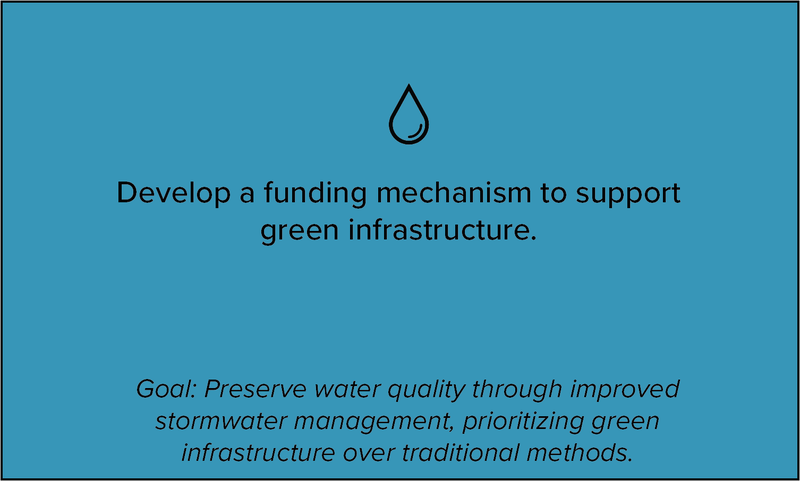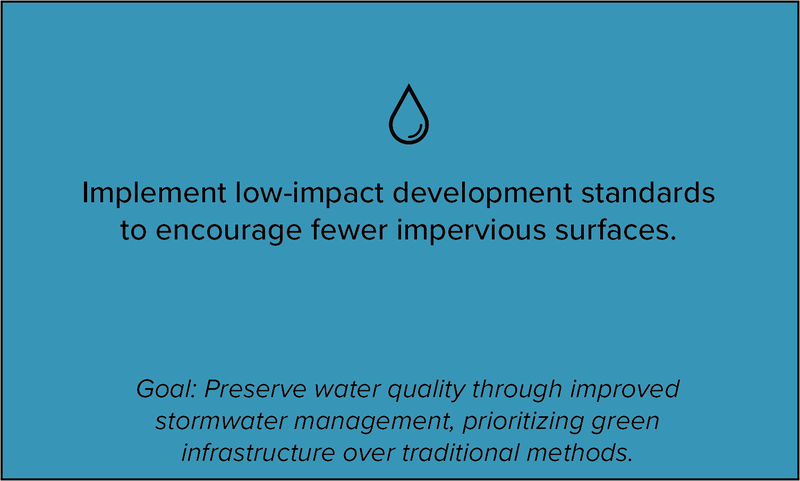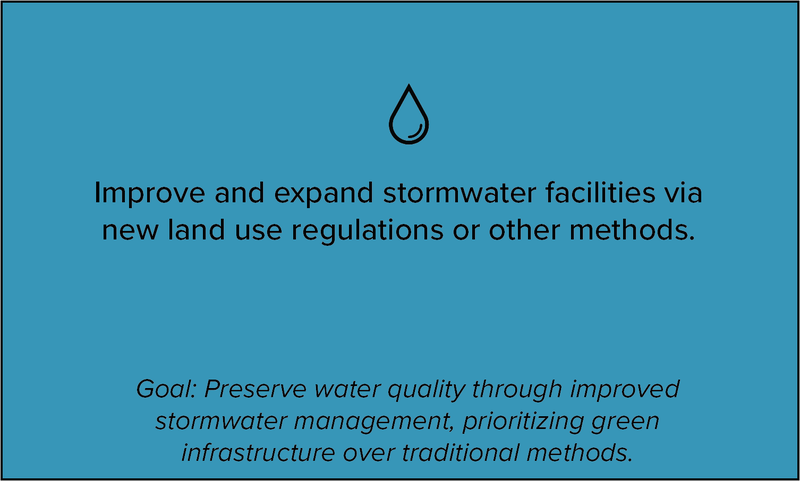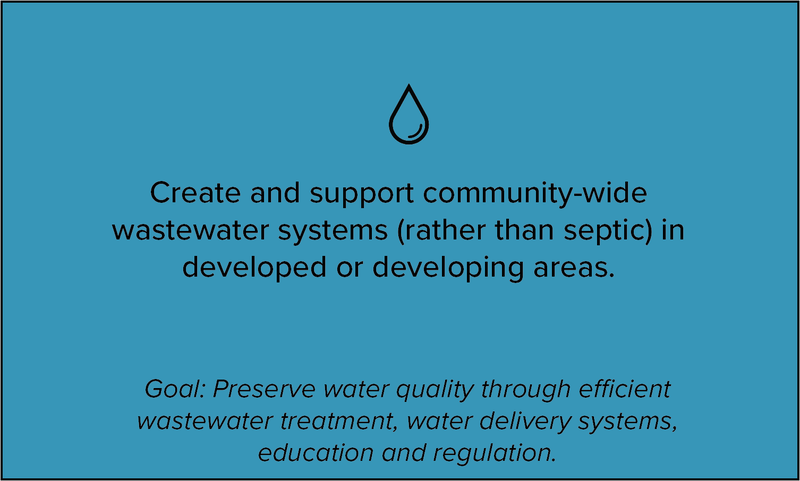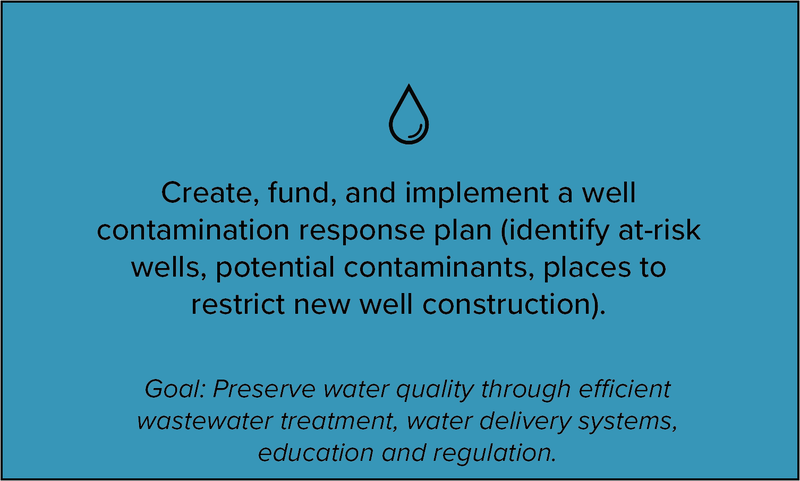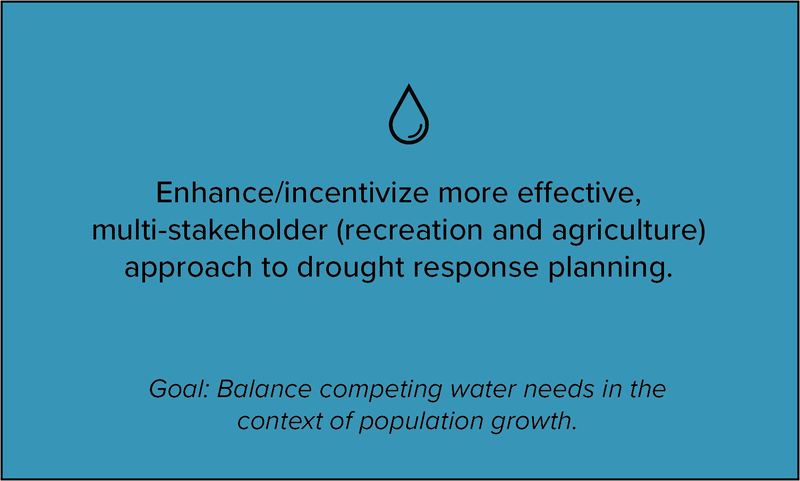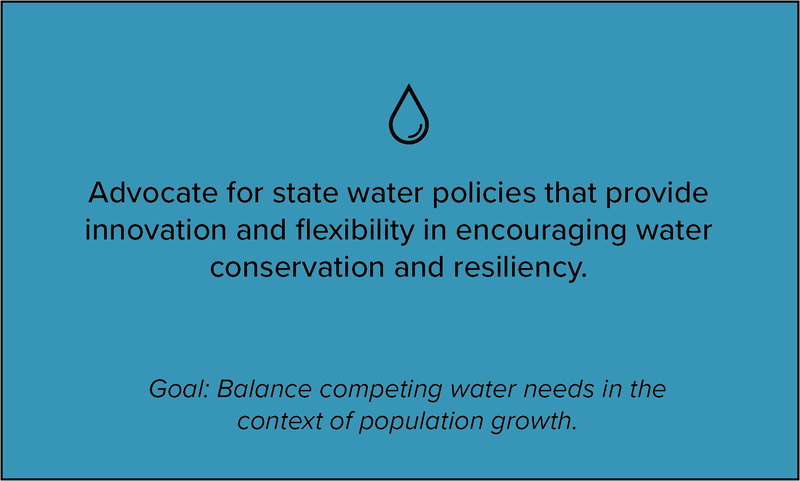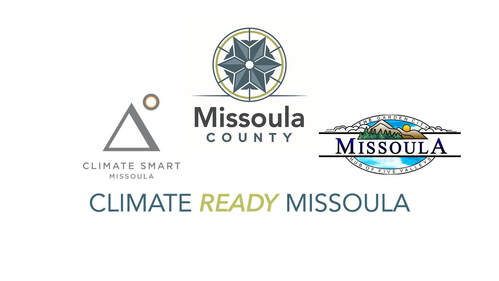Climate change will bring hotter, drier summers, and warmer, wetter winters that can bring drought and flooding.
Agricultural and outdoor workers, low-income residents, those with pre-existing conditions, and those living in substandard housing are most at risk.
Given the water sector's vulnerabilities, we have developed the following goals and strategies.
Goals are presented in bold with their corresponding action items below it.
Goals are presented in bold with their corresponding action items below it.
Enhance water storage opportunities and infrastructure to reduce incidence and impact of flooding and low-streamflow events.
Preserve water quality through improved stormwater management, prioritizing green infrastructure over traditional methods.
Preserve water quality through efficient wastewater treatment, water delivery systems, education and regulation.
|
Conserve water through water conservation plans, practices, regulations and strategic/guided growth.
Balance competing water needs in the context of population growth.
|
Do you prefer to think about strategies in terms of which climate impacts they respond to?
You can sort all water strategies by related climate impacts below, as well as whether they have a mitigation benefit or strengthen resiliency in a different sector as well as water.

